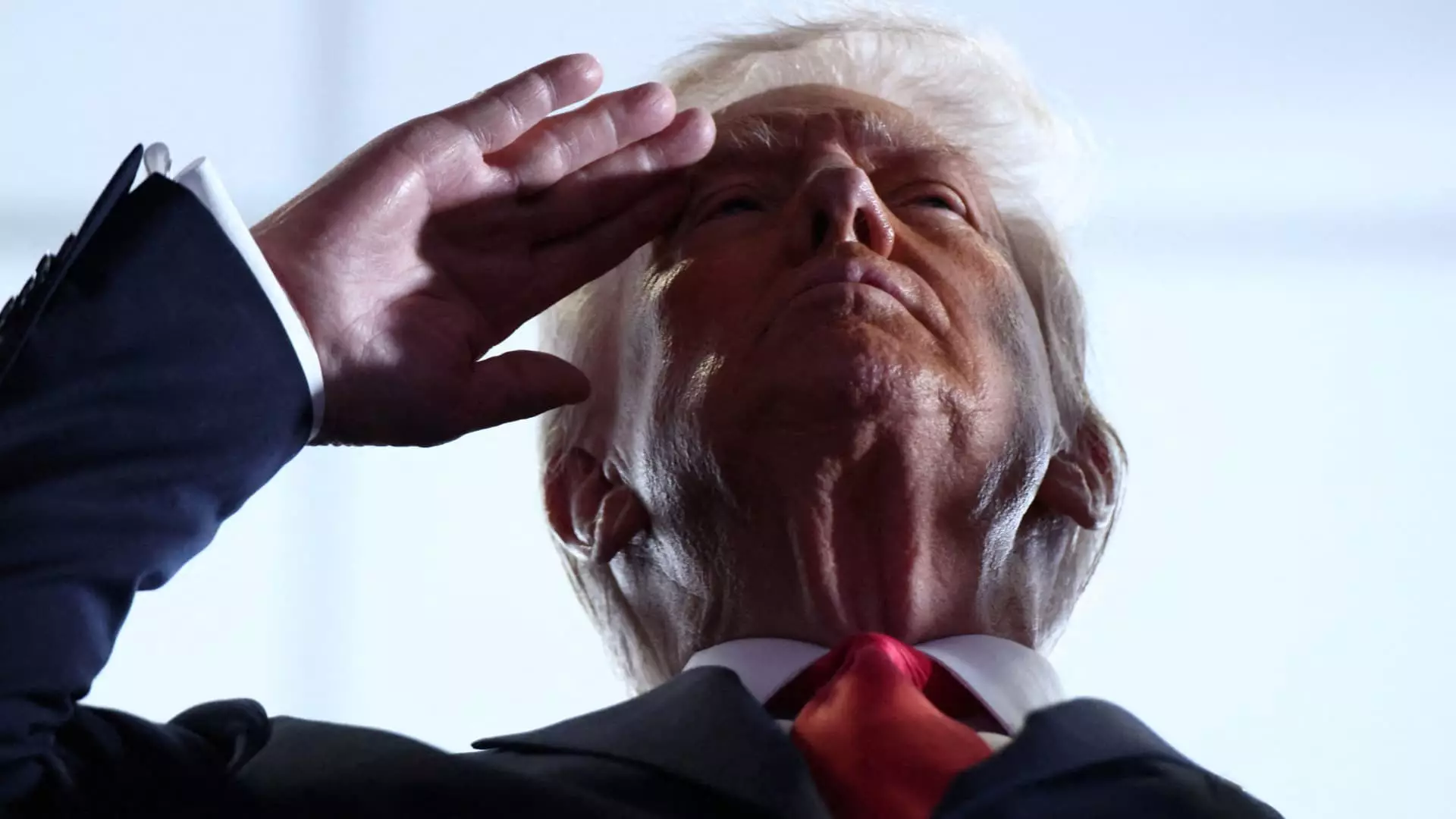President Donald Trump has ignited discussions across the American political landscape as he embarks on his second term, marked by a notable spike in public approval ratings. Recent polling data indicates that 53% of U.S. adults currently express satisfaction with Trump’s performance since he resumed office. This approval rating reflects a unique blend of public perceptions, driven by a series of executive actions that have characterized his early term. However, while these numbers seem robust, they reveal a complex landscape of approval that warrants a deeper examination.
The CBS News/YouGov poll that produced these statistics surveyed a sample of 2,175 individuals from last Wednesday to Friday, with a margin of error of 2.5 percentage points. Unlike previous surveys conducted by organizations like Gallup and Pew, this poll suggests that Trump is enjoying a surge in support as compared to when he first assumed the presidency in 2017. Interestingly, many respondents characterized Trump as “effective,” “focused,” “tough,” “competent,” and “energetic.” Yet, despite these positive traits, a significant gap emerges with 37% of respondents describing him as “compassionate.” This may suggest that, while Trump is perceived as a strong leader, he lacks an emotional connection with a portion of the electorate.
Moreover, a considerable 70% of poll participants believe Trump is adhering to the promises he made during the 2024 campaign. This demonstrates that, despite prevailing issues impacting his administration, such as inflation and trade, a significant portion of the populace acknowledges the fulfillment of his campaign commitments—perhaps indicating a preference for action over the implications of that action.
Despite these favorable ratings, respondents voiced skepticism and concern over crucial issues that have plagued Trump’s administration since its inception. Over 51% of those surveyed expressed the belief that Trump’s policies would exacerbate rising food and grocery prices, while only 28% thought they would result in lower prices. These economic concerns challenge Trump’s image as an effective leader and call attention to the dichotomy between partisan loyalty and real-world impact.
Additionally, when queried about tariffs imposed by Trump on imports from major trading partners such as Canada, Mexico, and China, a majority of respondents opposed these measures, underscoring widespread apprehension that tariffs would inflate costs rather than save jobs or encourage local manufacturing. Notably, while 56% of participants supported new tariffs specifically aimed at China, the overall reluctance to endorse these economic strategies suggests a growing disconnect between perceived policy goals and their anticipated consequences.
Trump’s immigration policies have produced strong positive feedback, which could be attributed to the administration’s focus on controlling illegal immigration and border security. Approximately 59% of those polled approved of his initial legalization efforts, while 64% supported his proposal to deploy U.S. troops to the southern border. These numbers signify a collective alignment among respondents regarding the importance of border security, highlighting how a tough stance on immigration can resonate deeply with certain voter demographics.
Conversely, Trump’s handling of contentious national issues, including the January 6 Capitol Riot, reflects further polarizing opinions. Although part of his support base may approve of the pardons he issued to those involved, overall approval stands at only 58%, indicating that a significant portion of the public harbors reservations about this action.
Furthermore, Trump’s approach to international conflicts, notably the situation between Israel and Hamas, was met with 54% approval. However, this support starkly contrasts with overwhelmingly negative responses from Democratic and liberal constituents, reinforcing the polarized nature of today’s political environment.
As Trump navigates the responsibilities of his second term against a backdrop of mixed approval ratings, he faces formidable challenges stemming from both domestic and international spheres. The survey results suggest a precarious balancing act; while Trump maintains a base that appreciates his leadership style and commitment to campaign promises, emerging criticisms centered around economic issues may hinder his long-term political viability.
Trump’s second term marks a pivotal chapter in American politics, characterized by fluctuating public perceptions and the necessity for nuanced policies that resonate beyond partisan allegiances. How he addresses these diverse concerns will ultimately determine his legacy and influence heading into the future.


Leave a Reply